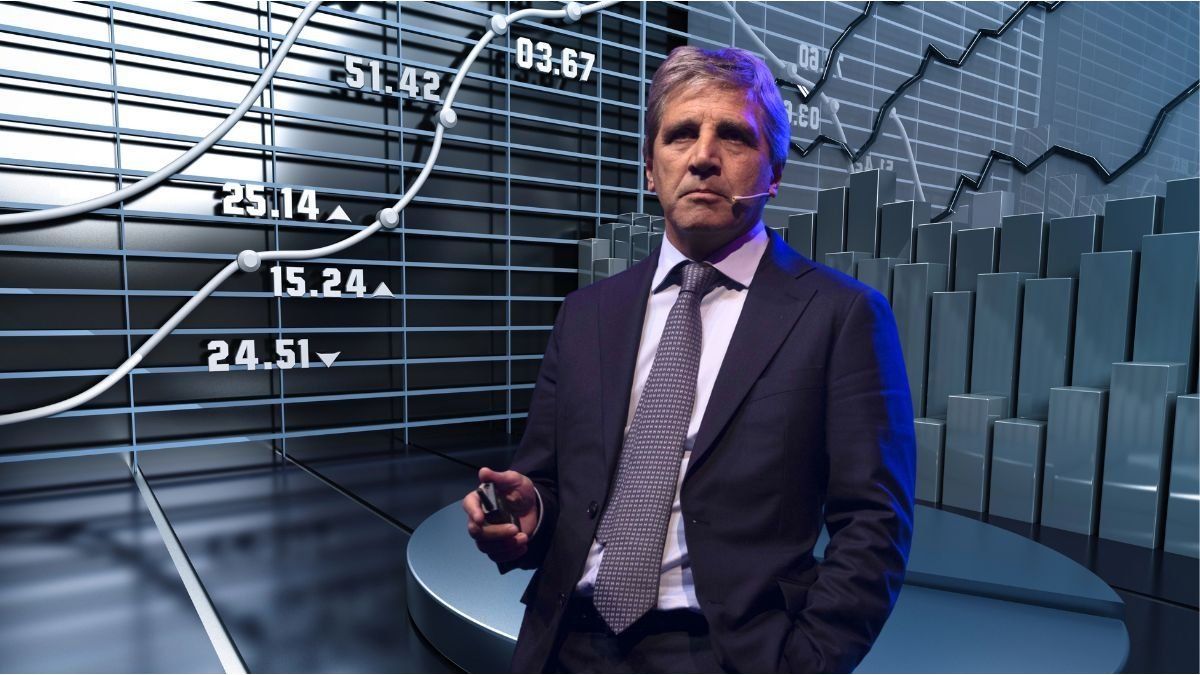Argentine economic policy is going through a curious metamorphosis, from the “economic plan” to the “trading screen.” What was once a strategic design space today resembles an open Bloomberg terminal in “simulation” mode, where officials deploy graphics and future as if the fate of the macroeconomy was played at a money table more than in a Ministry of Economy. The government headed by Javier Milei seems to embrace a libertarian aesthetic in the speech, but in practice he exercises almost prophylactic control over fees, futures contracts and exchange market. It is governed with algorithms and cautions, between electoral vertigo and systemic volatility.
Milei’s economic team has transformed public policy into an experience of “State trading”: improvised decisions, complex instruments and short -term obsession with market signals. Inspired by Living from trading by Alexander Elder (1993), which analyzes the psychology of trader and its self -destructive biases, Argentine institutions replicate speculative behaviors: emotional risk management, absence of long -term strategy and dependence on external shocks. The phenomenon is a form of government built on commercial efficiency narratives, based on state interventionism.
From the Ministry of Economy to Trading Floor
Empirical data of 2025 offer a disturbing postcard. In August, the government launched the Future contract on 1 -day bond rate In A3 markets, a measure presented as regulatory innovation to “mitigate risks.” However, behind the technical narrative a defensive reflex is hidden; Control rates to short term to prevent the volatility of ciones from impacting the dollar and inflationary expectations (CNV, 2025). The Caión operation already exceeded $ 2 billion monthly, with rates of up to 86% per year in the short term.
The scene refers to the concept of Elder (1993). “Markets need fresh supplies from losers, such as pyramids needed slaves” (p. 16). The Argentine State, turned into the largest operator, creates instruments that feed this logic. The BCRA, bass Santiago Bausili, monitors in real time fragmented operations in Byma, A3 and Matba-Rofex, while Caputo adjusts lace at 53.5% and emits Lecaps tied to surgical terms. The state apparatus operates like a high frequency Hedge Fund; Each movement is tactical, reactive and designed to survive the next expiration.
Govern as trader
Trading psychology is brutal; The bias for immediate results and the lack of discipline lead the majority to ruin (Elder, 1993). Milei’s economic policy seems to replicate this pattern. Each press conference is a signal to the market, each measure an attempt to “gain time.”
In this sense, behavioral economy literature illuminates the phenomenon. Thaler and Sunstein (2009) explain that decision -making under uncertainty is dominated by heuristics, biases of immediacy and overwhelming. The economic team, formed in investment banks, acts as if the macroeconomy was a trading table; Extreme risk is tolerated as long as the system does not collapse … today. “Success” is measured in the daily stability of the dollar, not in the ability to generate growth.
Financial instruments as economic policy
The Ministry of Economy has converted financial arsenal into a political tool. Linked dollar bonds and titles adjusted by Tamar are used to stop expectations rather than to finance productive investment. Debt management has become a financial engineering show: tenders, swaps and future replace budget discussion.
The strategy is a Creole reissue of the “financial casino” described by Keynes (1936). The capital market no longer assigns productive resources, but has become a speculative game where prices reflect short -term bets. The State, far from regulating, actively participates as “Alpha Player.” This paradox erodes the libertarian story. While Milei preaches economic freedom, his government deepens sophisticated intervention mechanisms, controlling micropreciations, rates and liquidity with therapeutic precision.
The State as a money table
Luis Caputo, Santiago Bausili and Pablo Quirno make up a team with Wall Street credentials. Their passage through JP Morgan and Deutsche Bank gives them technical experience, but also a management culture aimed at maximizing returns than to design public policies. This approach permeates the state apparatus: fast decisions, prioritization of financial metrics and contempt for structural planning.
In Sautu’s words, the institutions reflect the theoretical and practical frameworks of their actors: “All research – and all public action – is crossed by implicit assumptions that define reality” (p. 13). Thus, the Ministry becomes a “sovereign background upside down”; Instead of investing to diversify risks, it issues debt and financial products to survive every week.
Milei CEO
Milei is presented as a libertarian crusader against “La Casta.” However, his government has built a Hyperinervious market intervened from the Statea contradiction that exposes the distance between theory and practice. Recent studies (Gaggero, 2023) argue that Argentine libertarism is reduced to a media narrative, while in practice financial elites consolidate their control.
The presidential speech of “dynamiting the Central Bank” is diluted in front of a hyperactive BCRA, which operates as a comptroller, creator of instruments and arbitrator of expectations. This duality generates a schizophrenic scenario. The Argentine economy is simultaneously ideological laboratory and elite financial engineering platform.
Structural improvisation
The concept of “permanent crisis” (Gaggero, 2023) acquires new validity. Argentina has institutionalized improvisation: future contracts, simulated change control, extravagant rates, constant tenders, surprise communications. Each calculation error can trigger a shock, as in the High-Frequency Trading systems where an algorithm failure can evaporate billions in seconds (Lewis, 2014).
The data are eloquent; The country risk exceeds 800 points and short rates are at historical maximums. The government is committed to drying the peso square to contain the dollar, sacrificing productive credit. Macro stability is measured time by time, as in the control panel of a professional trader, and the margin of error is reduced to zero.
Conclusion
About two years of management, the Argentine libertarian experiment has mutated in a technofinance administration dominated by traders converted into ministers. The obsession with the Spreads and the daily flows replaced any development narrative. Milei, who promised to dynamit the status quo, has reinforced it. An increasingly sophisticated state in the management of financial instruments, but unable to build long -term political and economic stability.
Elder (1993) warned that “markets need constant losers to sustain their structure” (p. 16). In Argentina, the losers are millions; citizens whose daily economy depends on decisions made with the logic of a money table. What should be a national economic policy has become a gigantic financial engineering laboratory where Improvisation is state policy. And like any system based on extreme volatility, the question is not whether there will be an upcoming crisis, but when and with what magnitude.
References
National Securities Commission. (2025). Circular N ° 1086-25 and Communication No. 461: Contracts for Futures of Cauration. CNV. Elder, A. (1993). Living from trading. John Wiley & Sons. Gaggero, A. (2023). The libertarian experiment: political economy and Argentine crisis. 21st century editors. Keynes, JM (1936). The General Theory of Employment, Interst and Money. Palgrave Macmillan. Lewis, M. (2014). Flash Boys: A wall street revolt. WW Norton & Company. Sautu, R. (2005). Everything is theory: research objectives and methods. Lumiere. Thaler, RH, & Sunstein, CR (2009). NUDGE: IMPROVING DECISIONS ABUT Health, WEALTH, AND HAPPINESS. Penguin Books. Archive “08-27-2025.docx” (2025). Data on financial operations and public debt Argentina (unpublished).
Director of doing.com.ar, professor. Master in International Economic Policy, Doctor of Political Science, author of six books.
Source: Ambito
David William is a talented author who has made a name for himself in the world of writing. He is a professional author who writes on a wide range of topics, from general interest to opinion news. David is currently working as a writer at 24 hours worlds where he brings his unique perspective and in-depth research to his articles, making them both informative and engaging.




